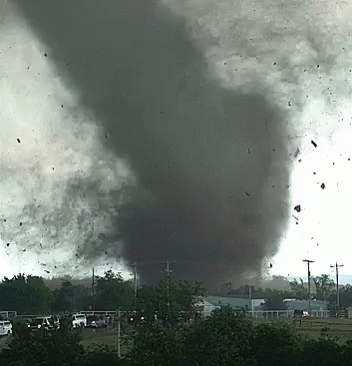
Reader, patience please. Before you accuse me of completely losing it, I know that I probably should have entitled this post, What’s the difference between surviving and just surviving? However, I was trying to catch your attention and spark your interest with an obvious oxymoron. DId I reel you in? I believe that there is a big difference between surviving and just surviving. For the remainder of this post, I will label these two positions, real survival and just surviving. The difference is in perspective and attitude.These differences are as easily found and exhibited in organizations as they are in individuals. Individuals and organizations can also find themselves in two other situations. The first or desired position is one in which individuals are very successful and thriving. The last or least desirable position is one in which individuals and organizations are languishing in defeat and failure, the end result of which is death. These are the thriving and defeated positions, respectively.
Just surviving is a form of life without the substance. It is the pretense of life without the fruit. It is deceiving others and trying to deceive yourself. It is trudging through the battles of daily life with little or no enthusiasm. It is barely coping when you should be grieving and healing. Just surviving can also be having a good reputation without the positive merit, rigor or results to support that reputation. This qualifies these individuals or organizations as frauds. “All show, and no go!”

There are many examples in the scriptures of just surviving. Jonah was miraculously saved from the belly of a fish, which represents real survival. He then went to Nineveh and preached repentance, witnessing one of the greatest revivals the world has experienced. Jonah went up on a hill overlooking the great city to see what God was going to do, waiting for God to destroy Nineveh and its inhabitants. When God spared the great city and all its residents, Jonah responded to God with a “I thought about telling you so! I knew you wouldn’t destroy this city.” Jonah went from really surviving to just surviving.
But it displeased Jonah exceedingly, and he was very angry. And he prayed unto the Lord, and said, I pray thee, O Lord, was not this my saying, when I was yet in my country? Therefore I fled before unto Tarshish: for I knew that thou art a gracious God, and merciful, slow to anger, and of great kindness, and repentest thee of the evil. Therefore now, O Lord, take, I beseech thee, my life from me; for it is better for me to die than to live. (Jonah 4:1-3, KJV)
Paul, writing to the church in Corinth, strongly urges the Christians there to mature and get rid of the attitude of just surviving.
For we are labourers together with God: ye are God’s husbandry, ye are God’s building. According to the grace of God which is given unto me, as a wise masterbuilder, I have laid the foundation, and another buildeth thereon. But let every man take heed how he buildeth thereupon. For other foundation can no man lay than that is laid, which is Jesus Christ. Now if any man build upon this foundation gold, silver, precious stones, wood, hay, stubble; Every man’s work shall be made manifest: for the day shall declare it, because it shall be revealed by fire; and the fire shall try every man’s work of what sort it is. If any man’s work abide which he hath built thereupon, he shall receive a reward. If any man’s work shall be burned, he shall suffer loss: but he himself shall be saved; yet so as by fire. (I Corinthians 3:9-15, KJV)

The apostle John acting as God’s secretary transcribed two dire warnings to churches in Asia Minor to repent of the attitude and mask of just surviving.
And unto the angel of the church in Sardis write; These things saith he that hath the seven Spirits of God, and the seven stars; I know thy works, that thou hast a name that thou livest, and art dead. Be watchful, and strengthen the things which remain, that are ready to die: for I have not found thy works perfect before God. Remember therefore how thou hast received and heard, and hold fast, and repent. If therefore thou shalt not watch, I will come on thee as a thief, and thou shalt not know what hour I will come upon thee. (Revelations 3:1-3, JKV)
And unto the angel of the church of the Laodiceans write; These things saith the Amen, the faithful and true witness, the beginning of the creation of God; I know thy works, that thou art neither cold nor hot: I would thou wert cold or hot. So then because thou art lukewarm, and neither cold nor hot, I will spue thee out of my mouth. Because thou sayest, I am rich, and increased with goods, and have need of nothing; and knowest not that thou art wretched, and miserable, and poor, and blind, and naked: I counsel thee to buy of me gold tried in the fire, that thou mayest be rich; and white raiment, that thou mayest be clothed, and that the shame of thy nakedness do not appear; and anoint thine eyes with eyesalve, that thou mayest see. As many as I love, I rebuke and chasten: be zealous therefore, and repent. (Revelations 3:14-19, KJV)
How many individuals today are putting on a show? How many have donned a mask, and are just going through the motions? How many modern organizations are neither “hot nor cold”? They have lost their first love. They open their doors each day, but only half-heartedly greet anyone that stumbles through the doors. They have little desire to go out into the streets and invite others to come into the fold. They have settled for just surviving, when they have before them the prospect of real survival, and even the possibility of thriving. As my aunt used to say, “What a waste! It’s a crying shame!”
Rebekah Basinger and I have had a conversation since late March in our blogs about organizations just surviving. See Rebekah’s Surviving, thriving, and six degrees of separation, and Beware “Iceberg beliefs” that can sink your organization, and my The Paradigm of Surviving and Thriving.

Rebekah opens her “Iceberg beliefs” post with the following vignette concerning a seminary president: “Ours has always been a hand-to-mouth existence,” the seminary president commented with a shrug and a sheepish smile. “I can’t imagine that thriving is in our future.” This attitude is very common in small values-based, service organizations. The source of this common, under the surface belief is often attributed to Christ’s commissioning of his disciples in the Gospel of Mark:
And he called unto him the twelve, and began to send them forth by two and two; and gave them power over unclean spirits; And commanded them that they should take nothing for their journey, save a staff only; no scrip, no bread, no money in their purse: But be shod with sandals; and not put on two coats. And he said unto them, In what place soever ye enter into an house, there abide till ye depart from that place. And whosoever shall not receive you, nor hear you, when ye depart thence, shake off the dust under your feet for a testimony against them. Verily I say unto you, It shall be more tolerable for Sodom and Gomorrha in the day of judgment, than for that city. (Mark 6:7-11, KJV)
It seems to me that as Christians, we often have a tendency to belabor the “fact” to be Christians we must wallow in the dumpsters and live from hand-to-mouth. We have convinced ourselves that if we as individuals, and corporately as organizations, are to follow Christ, we must give up everything to follow Christ’s example. We quote:

And it came to pass, that, as they went in the way, a certain man said unto him, Lord, I will follow thee whithersoever thou goest. And Jesus said unto him, Foxes have holes, and birds of the air have nests; but the Son of man hath not where to lay his head. And he said unto another, Follow me. But he said, Lord, suffer me first to go and bury my father. Jesus said unto him, Let the dead bury their dead: but go thou and preach the kingdom of God. And another also said, Lord, I will follow thee; but let me first go bid them farewell, which are at home at my house. And Jesus said unto him, No man, having put his hand to the plough, and looking back, is fit for the kingdom of God. (luke 9:57-62, KJV)
Jesus is indeed calling us to a life of commitment first. However, He has also promised that if we put Him first, He will take care of us. We are not promised that our lives will be a bed of roses. In fact, He has promised that we will be reviled by men and treated harshly, just like He was. However, if we trust in the Lord, His angels deliver us. We will not “want any good thing.”
The angel of the Lord encampeth round about them that fear him, and delivereth them. O taste and see that the Lord is good: blessed is the man that trusteth in him. O fear the Lord, ye his saints: for there is no want to them that fear him. The young lions do lack, and suffer hunger: but they that seek the Lord shall not want any good thing. (Psalm 34:7-10, KJV)
Real survival is the experience of having come through extraordinary trials, and landing on your feet. Some people have called this resiliency. Resiliency is described as the ability to take a hit and keep standing, or to fall down and get back up. I see real survival as bravely hanging on to the last thread of life by one’s fingernails. In this form, surviving is akin to winning. It may not be thriving, but it is definitely not losing. I believe that two posts, Aphasia is not the end of the world and Epilepsy is not the end of the world, that I wrote almost six years ago express some of my experiences with “real survival.”

I opened the aphasia post with a reminder to myself that the only things that I had lost in my battle with aphasia were “a few words.” I still had everything that mattered, I continued the post with a litany of blessings:
- a loving and supportive family;
- a compassionate and praying church family;
- considerate and helpful friends and neighbors;
- concerned and respectful colleagues and friends from more than forty years in higher education;
- a team of knowledgeable and caring medical personnel;
- a group of individuals on whom I can lean;
- a real social network, not a virtual one.
I concluded the post with this statement; “In addition to all these people, I still have my mind.” It was my testimony of real survival in the face of a traumatic brain incident and an insidious deficit known as aphasia. However, I missed one very important thing. What I missed in that blog post was to remember that I still had a loving, caring and all-powerful heavenly Father.

In my epilepsy post, I recounted part of the story of the HMS Resolute. Although this British warship was equipped for Arctic exploration, it found itself trapped in the early winter ice of an upper Canadian bay. The sailors had to abandon ship and walk across miles of frozen bay to safety in a small settlement that was later renamed Resolute Bay. Later in the summer when the ice started breaking up, the abandoned ship was freed and claimed by American naval ships. In a sign of good will, the American government returned the ship to Queen VIctoria in 1856. Twenty years later when the HMS Resolute was finally decommissioned from the royal navy, Queen Victoria had the warship dismantled. The queen also ordered three desks to be made from her timbers. One of the desks was given to President Hayes as a sign of friendship and gratitude. The Resolute desk still sits in the oval office or the president’s private office in the White House today. It is a testament to the good will between two countries, as well as a symbol of real survival and the will to carry on in the face of untenable odds. I ended this post with the declaration of real survival: On top of all the things that I listed, “I have the will to press on toward that unknown that looks like the end of the world.” As stated here, it sounds as if I am echoing William Ernest Henley in his poem Invictus. Although I do have an “unconquerable soul,” it is not my soul. As Paul wrote to the church in Galatia, “I am crucified with Christ: nevertheless I live; yet not I, but Christ liveth in me: and the life which I now live in the flesh I live by the faith of the Son of God, who loved me, and gave himself for me.” (Galatians 2:20 KJV)
Since I have been so long winded with my keyboard, I must hold off on discussing thriving and defeat until another post. Please stay tuned for the next installment. Thank you very much. I really do appreciate the gift of your time and attention.






